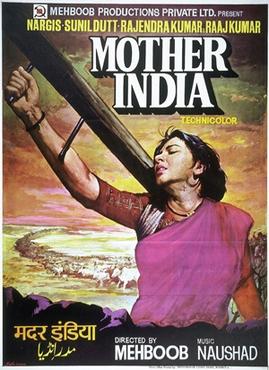Aage aage wo chale peeche saari duniya
din na dekhe raat na dekhe peeche padi hai duniya
aur nahi koi aur nahi wo to hai rupaiya
gol gol chaand sa rupaiya
kaisa hai ye khwab sa rupaiya
— Visheshwar Sharma, Kalyanji Anandji, Kishore Kumar and Surendra Mohan, in Hiraasat.
Okay, the headline was clickbait.
But now that I have your attention I have a few important things to share. I make a living by writing regularly on economics and finance. But this isn’t how it always was.
For my first couple of years in journalism, I largely wrote on personal finance topics. It took me a couple of years to figure out that between the product sellers and the personal finance writers, the subject was made needlessly complicated.
The trick wasn’t to try and understand every new product/idea that hit the market, which is what personal finance pages in newspapers and personal finance websites and magazines cater to, because they need to fill up space, so that they can gather advertisements against that space. Of course, personal finance writers need to keep writing about newer things and same things in newer ways, to keep their jobs.
When it comes to companies selling personal finance products, they are largely in the business of raising money and not necessarily managing it well
Hence, what is more important is to understand the broader principles of the subject and then stick to them over a period of time.
In the last fifteen years I have ended up advising more women on personal finance issues than men. In my limited experience, women seem to be more interested in understanding the nuances, the men typically play know it all when it comes to personal finance.
In this piece, I will elaborate on principles I think every woman should follow when it comes to managing her money and personal finances. (In fact, most of these principles can be followed by men as well, but then they know it already).
If you aren’t following these principles, 2021 is just about here and now is as good a time to start as any.
Here we go:
1) Save for the sake of saving. This is a very simple principle but many women I have come across, just don’t get it. They want to save for their next holiday, the next diamond ring, the next home, the next car, the children who aren’t there yet, the next whatever…
In fact, Morgan Housel makes this point beautifully in his recent book The Psychology of Money: “Only saving for a specific goal makes sense in a predictable world. But ours isn’t. Saving is a hedge against life’s inevitable ability to surprise the hell out of you at the worst possible moment.”
Like when the covid pandemic hit India in late March, people who had saved money for the sake of saving and had money in the bank account, were able to handle the situation in a much better way. If you lost your job and had money in the bank account you didn’t have to take on the first new job that came along. You could wait for something better.
As Housel puts it: “Savings without a spending goal gives you options and flexibility, the ability to wait and the opportunity to pounce. It gives you time to think. It lets you change course on your own terms.”
Further, if you save for the sake of saving and have money in the bank, you will be able to make the decisions, right or wrong, you want to make in life, and which might even mean not being pressurised by your family to get married to the next guy they discover on Shaadi.com.
If this isn’t important I don’t know what is. Hence, being financially independent is very very important and that can only happen if you save for the sake of saving.
In fact, as Housel puts it:
“We can leave aside rich, but independence has always been my personal financial goal. Chasing the highest returns or leveraging my assets to live the most luxurious life has little interest to me. Both look like games people do to impress their friends, and both have hidden risks. I mostly just want to wake up every day knowing my family and I can do whatever we want to do on our own terms. Every financial decision we make revolves around that goal.”
This should be the ultimate goal of saving and money in the bank account should not be a signalling effect for the society at large.
2) If you work for a company, be aware of how your salary is structured. Too many companies use the cost to company (CTC) approach to take their employees for a ride. If you don’t understand the items that make up your salary, ask around, Google, do whatever is needed to understand them. I come across way too many women who work very hard on their job, but have no idea of their salary structure (This is not to even remotely suggest that men have it all figured out). If you have ESOPs as a part of your CTC, know when they will vest and when you can sell them. The same when it comes to the soft loans that you can take from the company. It’s slightly difficult to understand this, but it’s not rocket science.
3) I think this is the most important point that I will make in this piece. Way too many women I know, leave the managing of their finances to their fathers (a horrible horrible idea because they will make you buy LIC policies), spouses (might end up taking too much risk than you prefer) or boyfriends (you might just breakup, who knows).
I mean if you work so hard to earn the money that you do, why not spend some time to figure out how to manage it well. As I said earlier, money in the bank, helps us make the decisions that we want to. If you can spend a week planning a ten-day holiday that you take during the course of a year, I am sure you can spend a few days understanding how to manage the money you work so hard to earn through the year.
4) This is a tricky point and hasn’t gone down too well with most women I have shared it with. Don’t have all your money in joint bank accounts with your spouse (works for the husbands as well). I am not remotely trying to suggest that if things don’t work out between you guys, he will cheat you on the money front (he may, but then who am I to suggest that). But untangling these things can be quite a pain.
So, it makes sense to have one joint account for the shared expenses, but beyond that have your money in your bank account. (Believe me, if things don’t work out, you are going to thank me forever for this).
5) This is another tricky point. If your father/husband/boyfriend/brother manages your money, be aware of where that money is parked. Be aware of the loans your husband has taken on. Again, I am saying this from experience. Many women just tend to be totally unaware on this front and then one day when the father dies, the husband leaves or the boyfriend breaks up, the reality of the situation suddenly hits them. Just getting a bank account shut after someone’s death can be a huge pain, if you are unaware of the details.
6) Many women don’t like the idea of managing their money because they think there is a lot of maths involved in it (Again, this is not to suggest that men understand the maths). It’s just basic fifth standard maths, which is not difficult to understand at all.
7) Make sure that you are making full use of the tax deductions available to you as a married couple. (Again, the husband may have no idea, doesn’t mean you also don’t).
8) Diamond jewellery looks great on you and please wear it by all means but don’t go about buying diamonds all the time. It’s a bad idea. Selling diamonds can be a difficult business in case of an emergency. (Don’t believe me, just Google).
9) If you are starting out and don’t know how to go about managing your money, just do a recurring deposit with a bank to start with. It won’t give you a great return but some money will start accumulating and some money is better than no money. Also, don’t buy an insurance policy unless your family is dependent on you or you have outstanding liabilities.
10) And finally, since we are about 2021, do remember that sometimes return of capital is more important than return on capital. 2021 will be that kind of year. Manage your money accordingly.
To conclude, these points go beyond doing the basic things, like investing regularly over a long period of time to ensure that you end up making decent returns and not necessarily the highest returns, not having all your investments in one asset class (diversification), buying a house to live in and thinking very carefully about buying another house, not over-leveraging yourself and not making any investment decisions which will keep you awake at night. Nothing is worth ruining a good night’s sleep.


